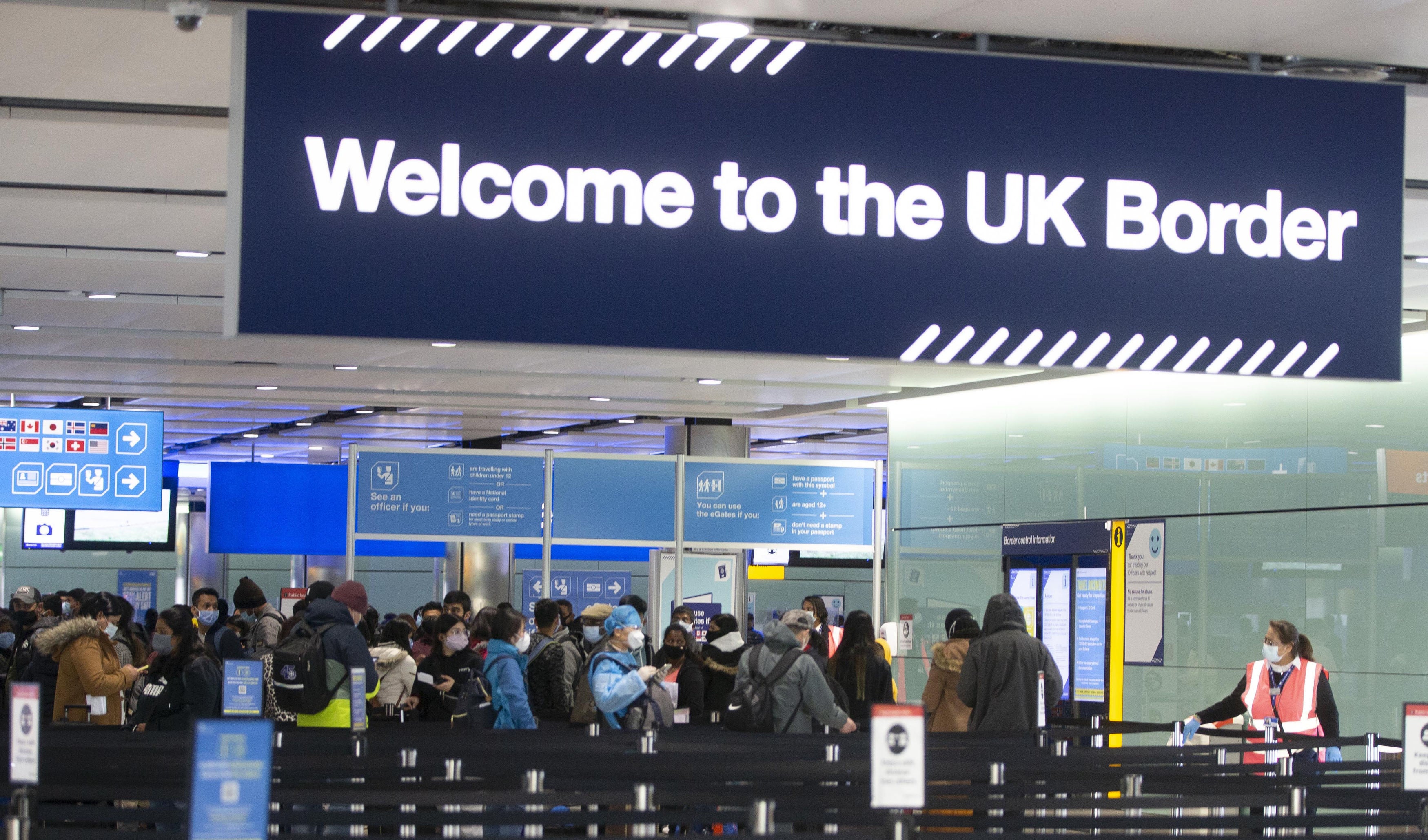Home Office blasted for ‘staggering’ cost of delayed border security projects
Report finds 20-year ‘litany of failure’ on digital programmes at Priti Patel’s department

Your support helps us to tell the story
From reproductive rights to climate change to Big Tech, The Independent is on the ground when the story is developing. Whether it's investigating the financials of Elon Musk's pro-Trump PAC or producing our latest documentary, 'The A Word', which shines a light on the American women fighting for reproductive rights, we know how important it is to parse out the facts from the messaging.
At such a critical moment in US history, we need reporters on the ground. Your donation allows us to keep sending journalists to speak to both sides of the story.
The Independent is trusted by Americans across the entire political spectrum. And unlike many other quality news outlets, we choose not to lock Americans out of our reporting and analysis with paywalls. We believe quality journalism should be available to everyone, paid for by those who can afford it.
Your support makes all the difference.A crucial system for the UK’s border security is running at least three years late despite “staggering” cost to taxpayers and may not be able to cope with expected passenger numbers, a scathing report has warned.
The Digital Services at the Border (DSAB) project is the latest in a “miserable record” of “exorbitantly expensive” Home Office digital programmes stretching back 20 years that have failed to deliver either for the taxpayer or for border security, a Westminster spending watchdog found.
Despite being initially slated to go live in 2019, the programme is being used by only 300 of the intended 7,000 border staff, with full rollout now not expected until March 2022, found the House of Commons Public Accounts Committee.
In a scathing judgment on Priti Patel’s department, the cross-party committee found that the Home Office’s record on delivering technology programmes was “poor”, with another project - the Emergency Services Network - six years late and costing taxpayers £650m a year.
Delays to DSAB have already cost the taxpayer £173m, following on from losses of at least £340m on a predecessor e-borders programme which was ditched in 2011 after eight years in development without ever coming into service.
The project was launched in In 2014 with a budget of £199 million to deliver a digitised border control system by 2019. But in 2019, it was “reset” by the Home Office, extending its delivery timescale by three years and adding £173m to the bill.
Meanwhile, the report said, Border Force staff are using legacy systems which are at least 15 years old and are regarded by the department as “expensive, difficult to maintain and unfit for its future needs”.
Some 140m passengers each year at 56 entry points to the UK are intended to pass through DSAB, which is regarded as is “crucial” to delivering national security objectives to protect the public from terrorism, crime, illegal immigration and trafficking and facilitate the legitimate movement of people across the border.
But today’s report said that the Home Office still has no proof that it will be able to cope with passenger volumes at pre-Covid levels, “let alone the 6 per cent annual growth in the volume of passengers” the Home Office predicts.
The committee blamed “optimism bias about delivery and a failure to be open and transparent about delays” for leaving the Home Office exposed to additional expense as it waited too long to reset the programme.
The Home Office has failed to “identify, acknowledge and be transparent about problems” in delivering tech programmes, the report said.
The committee called on the department’s top civil servant, permanent secretary Matthew Rycroft to report back within three months on a review of all of its major technology programmes.
In a damning summary of the committee’s findings, the report said: “The Home Office has presided over a litany of failure in nearly 20 years of non-delivery of digital border programmes, with significant delays introducing additional costs to taxpayers, continued dependency on contractors to maintain legacy programmes, and delayed delivery of benefits to Border Force officers, other users and passengers.”
And chair Meg Hillier said: “Immigration and border security are among the biggest political issues of our time.
“It is incredible that the Home Office can have failed so badly, for so long, to deliver technology that is crucial to our national security objectives: crucial to protecting the public from terrorism, crime, illegal immigration and trafficking, and crucial to facilitating legitimate movement across the border.
“The Home Office has struggled to get to grips with the technical challenges, resetting the programme and changing the leadership repeatedly. And it is the taxpayer hit by both the financial cost and the risks to our security.”
A Home Office spokesperson said: “The home secretary agrees with the assessment made by the Public Accounts Committee of historical issues at the Home Office.
“She is working closely with the permanent secretary to make changes within the department, and deliver value for money and results for the taxpayer.
“Following the reset of the Digital Services at the Border programme in 2019, the rollout of the new Border Crossing system is on schedule to be completed by the end of June 2021, delivering increased efficiency and providing a better experience for travellers.”



Join our commenting forum
Join thought-provoking conversations, follow other Independent readers and see their replies
Comments